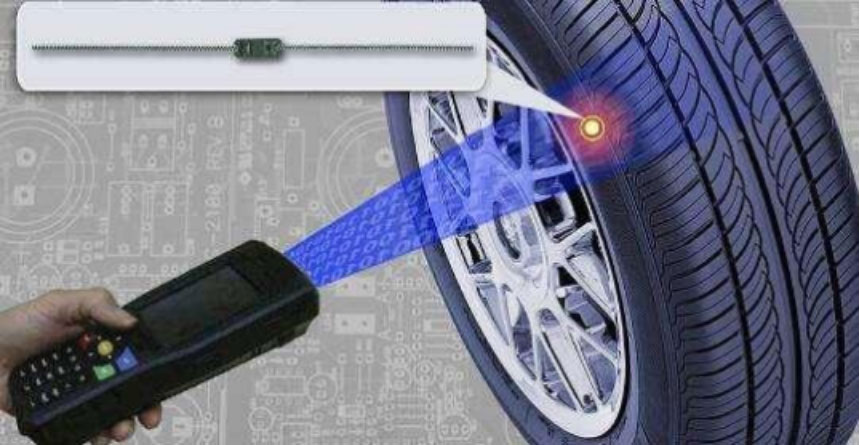The Role of Smart Tires in Autonomous Vehicles
Uncover how smart tires are empowering the advancement of autonomous vehicles for safer journeys.

The automotive world is fast embracing the concept of Smart Tires in Autonomous Vehicles. Often marked as just another milestone towards the revolutionizing autonomous driving technology, smart tires can play an even crucial role than we perceive. But what is the real role of smart tires in autonomous vehicles? How do they contribute towards making these self-driving machines safer and smarter? Let's delve into the discourse.
Understanding the Paradigm of Smart Tires in Autonomous Vehicles
Where traditional tires merely act as a vehicle's foot to get them from point A to point B, smart tires signify a leap that brings tires at par with other integral components of a vehicle's intelligence system.
Table of Contents
- What are Smart Tires?
- How do Smart Tires Work in Autonomous Vehicles?
- Importance of Smart Tires in Autonomous Driving
- Challenges Facing Smart Tires
- The Future of Smart Tires in Autonomous Vehicles
What are Smart Tires?

Simply put, smart tires are basically 'intelligent' tires that can communicate with the host vehicle and the driver to provide real-time data and insights regarding the tire's condition. These tires use embedded sensors to monitor their own pressure, temperature, wear, and even track road conditions. Many are even designed to adapt to different driving conditions for optimized performance.
Key Components of a Smart Tire
- Sensors: They collect real-time data about the tire's health and the driving conditions
- Microprocessors: These process the raw data from sensors into meaningful information
- Transceivers: They transmit the processed data to the vehicle's central control system or even to an external device, like the driver's smartphone
How do Smart Tires Work in Autonomous Vehicles?
In autonomous vehicles, smart tires are venturing to do more than just being a monitoring system. They are becoming an essential part of the car's intelligence, shaping how the car "perceives" the road.
Here's a simplified explanation of how smart tires work with autonomous cars:
- Sensors in the tire collect data on pressure, tire wear, road surface & conditions, traction, and other vital metrics.
- This data is transmitted to the vehicle's control system, contributing to the decision-making process.
- Based on the information received, the vehicle then makes informed decisions, like adjusting speed, altering the braking system, or changing the suspension setting.
Think of it as the autonomous car 'feeling' the road through its smart tires. This drastically improves the safety and reliability of autonomous vehicles, paving the way for a significant shift towards a higher level of 'autonomity'.
Importance of Smart Tires in Autonomous Driving
Understanding the importance of smart tires in the ecosystem of autonomous driving requires us to look at the crucial roles they are set to play.
Critical Roles of Smart Tires in Autonomous Cars
- Improved Safety: With real-time data on various conditions, autonomous cars can make safer routing decisions. This can drastically reduce the chances of accidents due to tire failures or unexpected driving conditions.
- Real-Time Maintenance Insights: Constant monitoring of tire health can alert drivers or car maintenance systems about issues way before they become major problems.
- Enhanced Efficiency: Smart tires can adapt for optimal efficiency, impacting fuel consumption and overall vehicle performance.
While they remain instrumental in making autonomous driving safe, smart tires also represent an opportunity to enhance the user experience through data-driven insights.
Challenges Facing Smart Tires
While the progression of smart tires has been impressive, it's not without its roadblocks. As with any technological advancement, smart tire development and its integration with autonomous vehicles faces its own share of challenges.
Key Challenges to Overcome
- Data Overload: With the amount of data generated, processing and interpreting it meaningfully poses a crucial challenge.
- Cost, Efficiency, and Scalability: Smart tires, as of now, are expensive and not easy to manufacture on a large scale. The costs need to come down to make them commercially viable in the mass market.
- Reliability and Durability: The embedded systems need to meet the lifespan of the tire. Currently, finding suitable electronics that survive harsh tire conditions for an extended period is challenging.
Addressing these challenges is imperative for the all-round advancement and acceptance of smart tires.
The Future of Smart Tires in Autonomous Vehicles

The continued march towards a future with autonomous vehicles has inevitably pushed smart tires into the spotlight. Despite the challenges, the smart tire market is poised for exponential growth with some exciting developments to watch out for.
What's on the Horizon?
- Tire Health Tracking: Advanced tracking of tire health metrics is anticipated to facilitate predictive maintenance, further boosting the safety of autonomous vehicles.
- Tire-to-Tire Communication: Pioneering tire manufacturers are dabbling with the concept of "tire networking" — enabling smart tires to exchange information shall significantly improve the vehicle's decision-making process.
- Increasing Commercialization: As technology evolves and costs go down, smart tires will start filtering down to everyday vehicles, not just luxury cars or high-end autonomous vehicles.
In conclusion, the role of smart tires in autonomous vehicles stretches far beyond just being 'the thing that makes the cars move'. It's about transforming them into vital cogs in the wheel of driving intelligence. As autonomous vehicles accelerate towards becoming a part of our day-to-day life, smart tires are set to take center stage, contributing their bit towards safer and smarter roads of the future.
What's Your Reaction?








































































